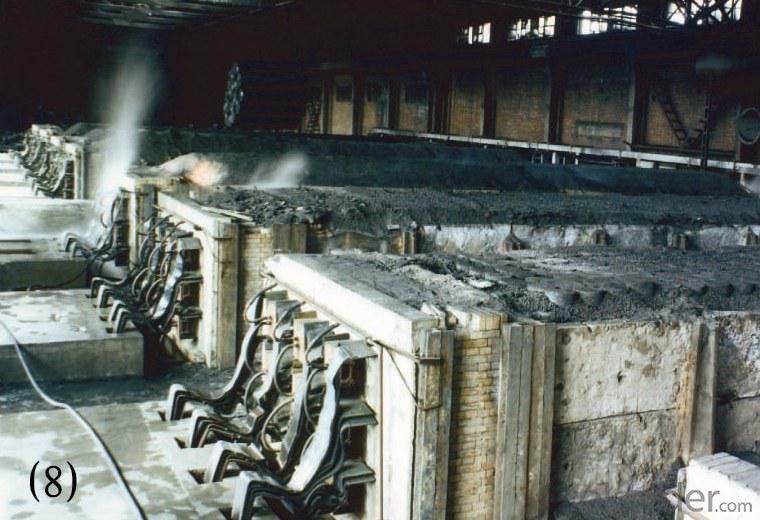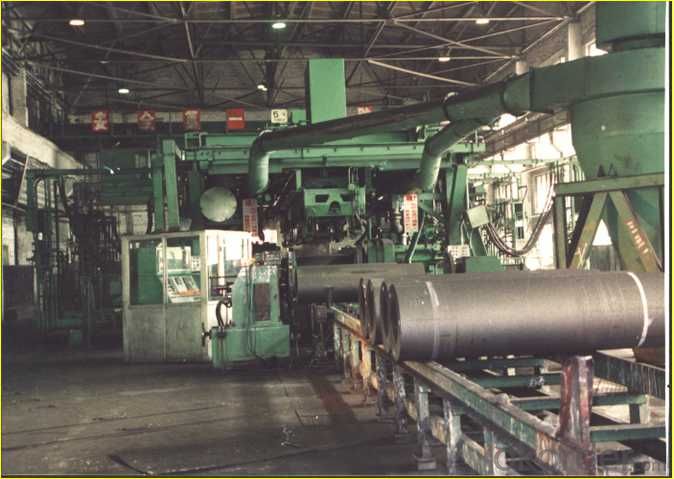Loading Port:Tianjin
Payment Terms:TT or LC
Min Order Qty:20 m.t.
Supply Capability:3000 m.t./month
Specifications
Chemical Index of Graphite Electrodes UHP with Nipples
1.Diameter: 200 to 700mm
2.Length: 1600 to 2400mm
3.Nipple:3-4TPI
Chemical Index of Graphite Electrodes UHP with Nipples
1. Grade: RP, HP, UHP, SHP, RPI
2. Diameter: 200 to 700mm at your choice.
3. Length: 1600 to 2400mm at your choice.
4. Nipple: 3-4 TPI
5. Fine mechanical strength and machining quality, low specific resistance, high temperature and oxidation resistance
6. Low price and timely delivery.
Feature
Chemical Index of Graphite Electrodes UHP with Nipples
Grades: RP, RPI, HP, SHP, UHP
All graphite electrodes are offered with tapered nipples, i.e. 3 or 4 threads per inch, and meet the internationally accepted tolerances as per NEMA CG 1/ IEC 60239 / JIS R7201 standards.
UHP
Physical and chemical index
Item | Unit | Nominal Diameter(mm) | |||
YB/T4088-2000 | Typical Values | ||||
Industry Standard | |||||
300-400 | 450-550 | 350-550 | |||
Resistance | Electrode | ohm | ≤6.2 | ≤6.5 | 4.6-6.2 |
Nipple | ≤5.5 | ≤5.5 | 3.5-4.5 | ||
Bending Strength | Electrode | Mpa | ≥10.5 | ≥10.0 | ≥11.0 |
Nipple | ≥16.0 | ≥16.0 | ≥18.0 | ||
Elastic Modulus | Electrode | Gpa | ≤14.0 | ≤14.0 | ≤13.0 |
Nipple | ≤18.0 | ≤18.0 | ≤17.0 | ||
Density | Electrode | g/cm3 | ≥1.65 | ≥1.64 | 1.65-1.72 |
Nipple | ≥1.72 | ≥1.70 | 1.75-1.82 | ||
Ash content | Electrode | % | ≤0.3 | ≤0.3 | ≤0.3 |
Nipple | |||||
CTE(100-600) | Electrode | 10-6/C | ≤1.5 | ≤1.5 | 1.20-1.40 |
Nipple | ≤1.4 | ≤1.4 | 1.10-1.30 | ||
Image
Chemical Index of Graphite Electrodes UHP with Nipples


FAQ:
Chemical Index of Graphite Electrodes UHP with Nipples
1. Why it is essential to select electrode carefully for each particular furnace?
The primary factor is the maximum current intensity of the furnace. However, other conditions should also be considered, such as the characteristics of the furnace, type of charge, tap to tap time, oxygen blowing, mechanical requirement, furnace regulation, etc.Generally, specifications for electrodes of most grades have been standardized. Variation of physical characteristics with temperature, however, should be taken into account whenever using the electrodes.
Precautions to the use of graphite electrodes
2. Why it is essential to not to fit electrodes and nipples made by different manufacturers together?
The capacities of the furnace and the transformer determine whether the grade and diameter of the electrode are suitable to the furnace or not.
In order to prevent the electrode column from being hit by the collapsed furnace loads, large and heavy scraps should be loaded onto the bottom of the furnace. Do not put significant quantity of insulating materials such as lime and so on just under the electrode column, otherwise it would be difficult to power on the electrode column, or even break it.
electrode column may be hurt when it moves up and down if the furnace cover is out of the position.
When making a connection, lost or damaged pitch plugs must be replaced.
The reason must be found out if a gap appears between two electrodes after connection. The electrode column can only be loaded after the gap being eliminated.
The electrode column must be strictly perpendicular to the ground lever. Oblique column is not allowed during operation.
The holder must be placed between the two safety marks on the top electrode, otherwise the column may be broken.
Generally, different manufacturers may make their electrodes with different raw materials and processes, therefore the physical and chemical properties of their electrodes are usually different. Please do not fit electrodes and nipples made by different manufacturers together.
Applications
Chemical Index of Graphite Electrodes UHP with Nipples
Electrodes in electric arc furnace and ladle refining furnace for steel making;
Electrodes in electric smelting furnace for producing industrial silicon, yellow phosphorus, corundum and so on.